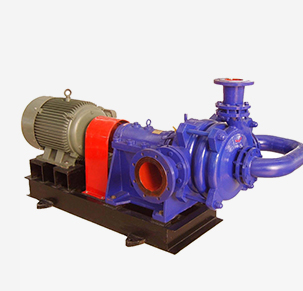Javanese
- Afrikaans
- Albanian
- Amharic
- Arabic
- Armenian
- Azerbaijani
- Basque
- Belarusian
- Bengali
- Bosnian
- Bulgarian
- Catalan
- Cebuano
- Corsican
- Croatian
- Czech
- Danish
- Dutch
- English
- Esperanto
- Estonian
- Finnish
- French
- Frisian
- Galician
- Georgian
- German
- Greek
- Gujarati
- Haitian Creole
- hausa
- hawaiian
- Hebrew
- Hindi
- Miao
- Hungarian
- Icelandic
- igbo
- Indonesian
- irish
- Italian
- Japanese
- Javanese
- Kannada
- kazakh
- Khmer
- Rwandese
- Korean
- Kurdish
- Kyrgyz
- Lao
- Latin
- Latvian
- Lithuanian
- Luxembourgish
- Macedonian
- Malgashi
- Malay
- Malayalam
- Maltese
- Maori
- Marathi
- Mongolian
- Myanmar
- Nepali
- Norwegian
- Norwegian
- Occitan
- Pashto
- Persian
- Polish
- Portuguese
- Punjabi
- Romanian
- Russian
- Samoan
- Scottish Gaelic
- Serbian
- Sesotho
- Shona
- Sindhi
- Sinhala
- Slovak
- Slovenian
- Somali
- Spanish
- Sundanese
- Swahili
- Swedish
- Tagalog
- Tajik
- Tamil
- Tatar
- Telugu
- Thai
- Turkish
- Turkmen
- Ukrainian
- Urdu
- Uighur
- Uzbek
- Vietnamese
- Welsh
- Bantu
- Yiddish
- Yoruba
- Zulu
Telephone: +86 13120555503
Email: frank@cypump.com
Nov . 15, 2024 18:41 Back to list
slurry pump impeller
Understanding Slurry Pump Impellers Key Components in Efficient Pumping
In various industrial applications, slurry pumps play a vital role in transferring mixtures of liquid and solid materials. One of the most critical components of a slurry pump is the impeller. This article explores the function, design, and importance of slurry pump impellers in enhancing operational efficiency and longevity.
What is a Slurry Pump Impeller?
An impeller is a rotating component within a pump that transfers energy from the motor to the fluid being pumped. In the context of slurry pumps, impellers are specially designed to handle abrasive and viscous mixtures containing solids. The impeller’s main function is to increase the velocity and pressure of the slurry, enabling it to move through the pump and into the piping system.
Design Considerations
The design of a slurry pump impeller is crucial for its performance and durability
. Unlike standard pump impellers, slurry pump impellers must withstand harsher conditions due to the abrasive nature of the materials being pumped. Key design considerations include1. Material Selection Slurry pump impellers are typically made from high-chrome alloys, elastomers, or rubber compounds that offer excellent wear resistance. The choice of material depends on the specific characteristics of the slurry, such as particle size and density.
2. Impeller Shape and Configuration The shape and design of the impeller blades directly affect the performance of the pump. Closed impellers, with blades fully enclosed, are generally more efficient for pumping slurries, while open impellers are better suited for viscous fluids. The blade angle and spacing are also manipulated to optimize flow and reduce turbulence.
3. Size and Diameter The size of the impeller should be proportional to the pump requirements. Larger impellers can handle higher flow rates but may require more power, while smaller impellers can be more efficient with specific types of slurries.
slurry pump impeller

Importance in Pumping Efficiency
The efficiency of a slurry pump is significantly influenced by its impeller. A well-designed impeller contributes to the overall hydraulic efficiency of the pump, minimizing energy consumption while maximizing flow rates. This efficiency is crucial for industries such as mining, wastewater treatment, and construction, where pumping large quantities of slurry is common.
Moreover, the durability of the impeller affects the maintenance and operational costs of the pump. Impellers that offer high resistance to wear and erosion can decrease the frequency of replacements, leading to reduced downtime and lower operational costs.
Challenges and Solutions
Despite advancements in impeller design, slurry pumps face several challenges, including cavitation, corrosion, and wear. Cavitation, which occurs when the pressure in the pump drops too low, can lead to significant damage. To combat this, manufacturers are developing impellers with features that increase cavitation resistance.
Additionally, regular maintenance and inspections are essential in identifying wear and tear early, allowing for timely replacements or repairs. Implementing predictive maintenance strategies, powered by data analytics, can further enhance the lifespan of slurry pump impellers.
Conclusion
In conclusion, slurry pump impellers are crucial components that directly influence the efficiency and reliability of slurry pumping systems. Their design, material selection, and size play a pivotal role in ensuring that these pumps operate effectively under challenging conditions. Understanding the intricacies of slurry pump impellers can help industries optimize their operations, reduce costs, and improve overall productivity. As technology advances, continuous innovation in impeller design will further enhance the performance and longevity of slurry pumps in industrial applications.
-
Heavy-Duty Mining Sludge Pumps - Wear-Resistant Slurry Handling
NewsAug.02,2025
-
Horizontal Split Case Pump with GPT-4 Turbo | High Efficiency
NewsAug.01,2025
-
ISG Series Pipeline Pump - Chi Yuan Pumps | High Efficiency, Durable Design
NewsAug.01,2025
-
Advanced Flue Gas Desulfurization Pump with GPT-4 Turbo | Durable & Efficient
NewsJul.31,2025
-
ISG Series Vertical Pipeline Pump - Chi Yuan Pumps | Advanced Hydraulic Design&Durable Construction
NewsJul.31,2025
-
ISG Series Vertical Pipeline Pump - Chi Yuan Pumps | Energy Efficient & Low Noise
NewsJul.31,2025










